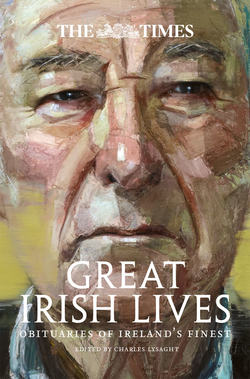Читать книгу The Times Great Irish Lives: Obituaries of Ireland’s Finest - Charles Lysaght - Страница 6
ОглавлениеHENRY GRATTAN
6 JUNE 1820
WITH UNFEIGNED CONCERN we announce … the much-to-belamented death of the Right Hon. Henry Grattan. The dissolution of this intrepid patriot would have been a subject of deep regret to the empire at large, had not the decline of his intellectual as well as vital powers been more recently observed. To his own immediate countrymen it is a source of profound and even filial sorrow …
Mr Grattan came into Parliament about the year 1773. Towards the close of the American war he carried against both the English and Irish Government the repeal of those statutes which had given the British Parliament, and in some respects the Privy Council of England, an absolute control over the legislature of his native country. He has been since the year 1790 the strenuous, persevering, and powerful advocate for an entire abolition of the penal laws against the Catholics. This measure, in the separate Parliament of Ireland, he repeatedly declared to be essential to the complete deliverance of that country from the yoke of the British ministers, as, since the Union, he has, in the language of Mr Pitt, described Catholic emancipation to be a necessary step towards giving both countries the full benefit of that important measure. Mr Grattan has long laboured under dropsy of the chest. It is well known that he was conscious of his approaching dissolution; and that, when he devoted “his last breath to his country,” he was sensible that his appearance in Parliament, for the pious purpose of recommending to the House of Commons the cause so near his heart, must tend to accelerate that mournful sacrifice. His enfeebled frame did not second the aspirings of his bold and fervent spirit: he was doomed to bequeath emancipation as a legacy – not to bestow it as a gift.
Mr Grattan’s eloquence was peculiar and original. It resembled that of no speaker that we have ever heard. His voice was naturally feeble, but practice made it audible; and laborious effort, combined with a careful and studied articulation, rendered his high tones so piercing that none of them were lost. Mr Grattan had no wit, or rather, in Parliament, he did not exhibit any. He seldom discussed the details of any question, but fastened on a few of the leading principles, which he developed and illustrated with singular strength of language, and copious felicity of imagination. His sentences were full of antithesis; and, rather than lose that favourite structure of expression, he would build it up occasionally of common-place or even puerile matter. His arguments were frequently a string of epigrams. His retorts and personal invectives were distinguished by a keen and pithy sarcasm, which told upon every nerve of his ill-starred opponent. There was, nevertheless, an earnestness and solemnity, an innate and manifest consciousness of his own rectitude, about the man, which taught his hearers to respect and admire him when he most failed to convert them to the opinions of which he was the advocate. Mr Grattan, in society, was playful and simple as a child: irritable, perhaps, in a public assembly, he was elsewhere the very soul of courtesy, complacency, and cheerfulness.
Mr Grattan’s property consisted for the most part of the sum of 50,000l, which had been tendered to him by his country, and it was honourably earned. He died at his house in Baker-street, Portman-square.
